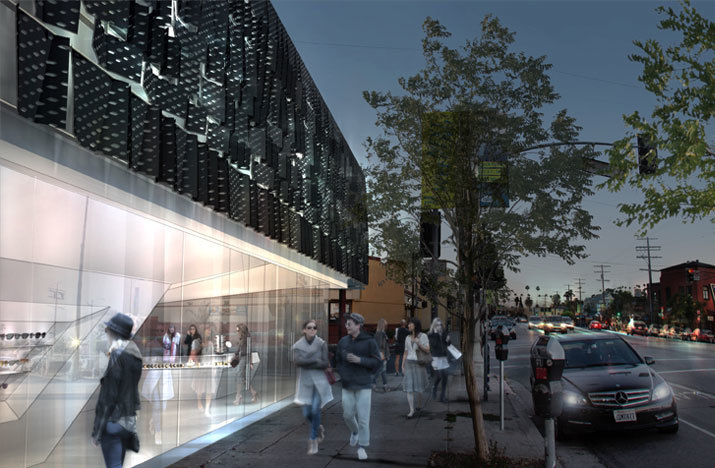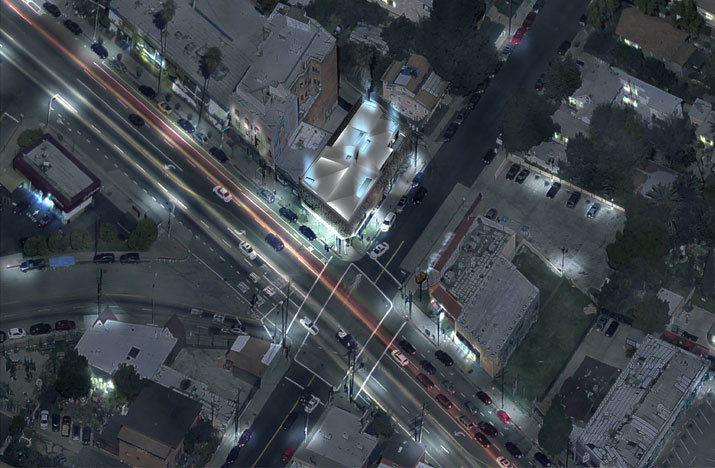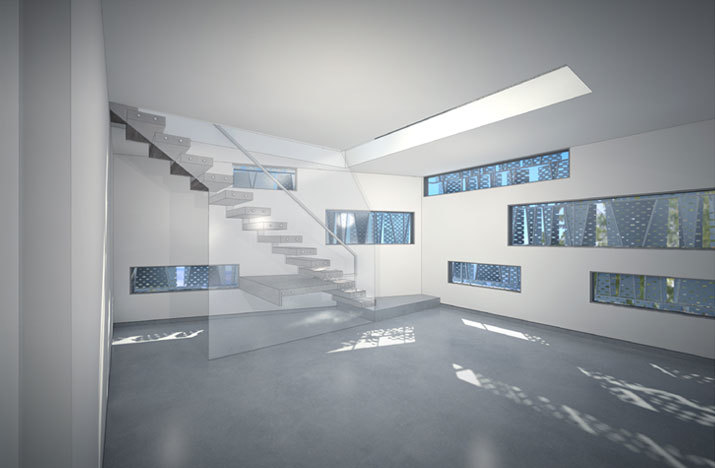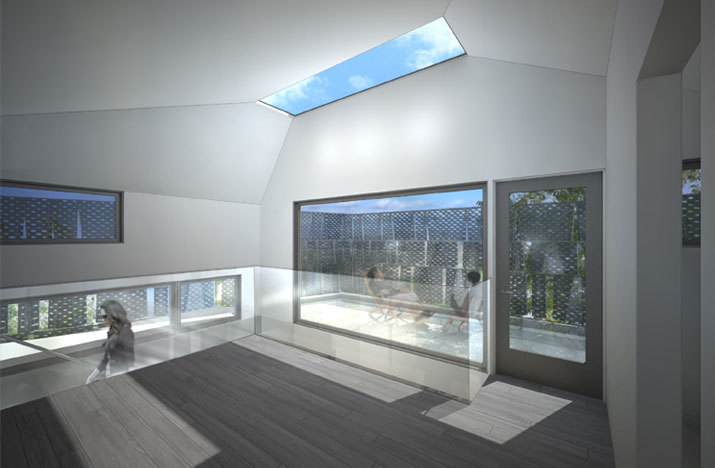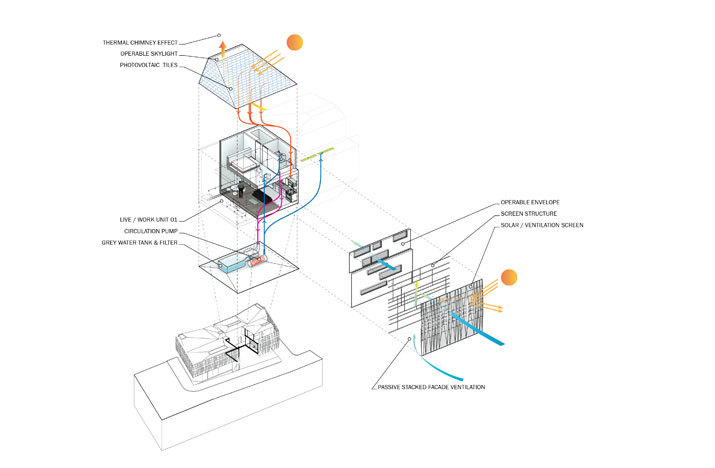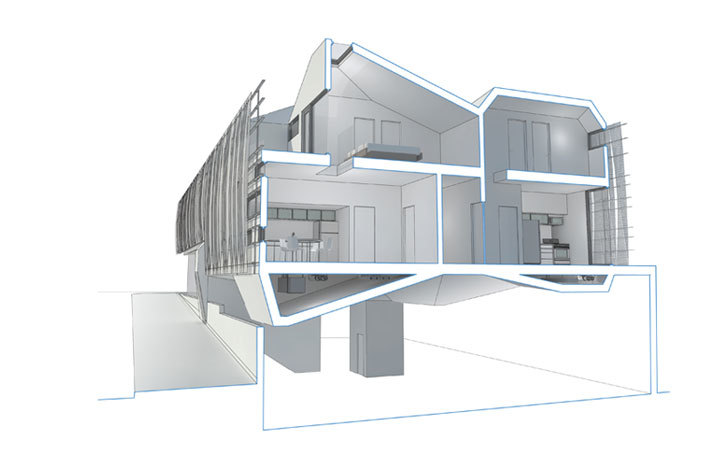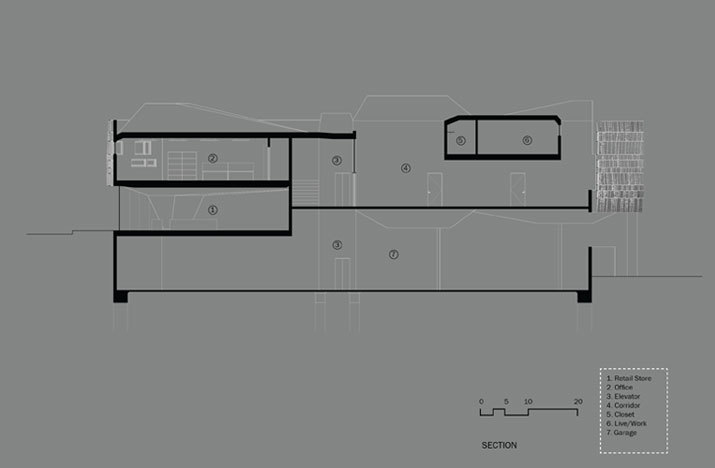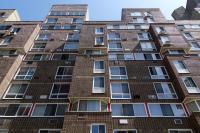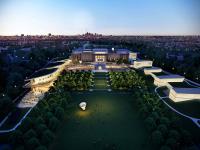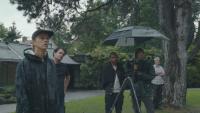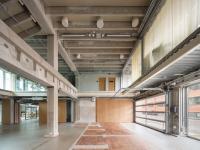Sunset Hybrid
Los Angeles, USA
Located at Sunset Junction in Los Angeles, the project site is a 5,000 sf corner parcel currently housing a relic of the neighborhood’s not too distant past, the adult video and book store Circus of Books. The commercially zoned property is situated within the heart of the Silver Lake neighborhood, with adjacent boutique shops, restaurants, bars, and a music school on Sunset Boulevard and both single and multi-family residences on the perpendicular streets. Due to its position, wedged between Sunset Boulevard, Sanborn Avenue, Wit Place, and a one story commercial building, the site has four exposures to incorporate within the development of the building design.
The client’s project brief focused on maximizing the leasable square footage of the site, although specific programmatic requirements were not given. Our solution focused on the creation of a hybrid building that provides the client’s desired floor area, contributes to the increasingly vibrant community culture of this area of Sunset Boulevard, as well as evoking the site’s history through the contoured program volumes and the revealing tectonic of the building’s skin.
The building strategy isolates three functions – retail, office, live/work studio – and then positions them within the site in their optimal location relative to adjacent site functions. Commercial storefront program is placed along Sunset Boulevard, two office suites above, and four live/work studios at the rear above the subterranean parking to mediate the connection with the neighborhood beyond. The live/work units and the commercial suites are accessed through a shared, but staggered, circulation core. This communal core permits the fluid use of the former as flexible office/studio space in addition to live/work purposes.
As a development of the stacked program strategy, these elements are wrapped with a performative garter conceptually holding their position. The garter serves to not only unify the disparate elements, but to modify the exposure, privacy, and thermal function of the building skin. In addition to the garter’s contribution to the performance of the building systems, the office suites and residential units employ passive ventilation strategies through the contoured roof forms and their associated operable skylight systems.

